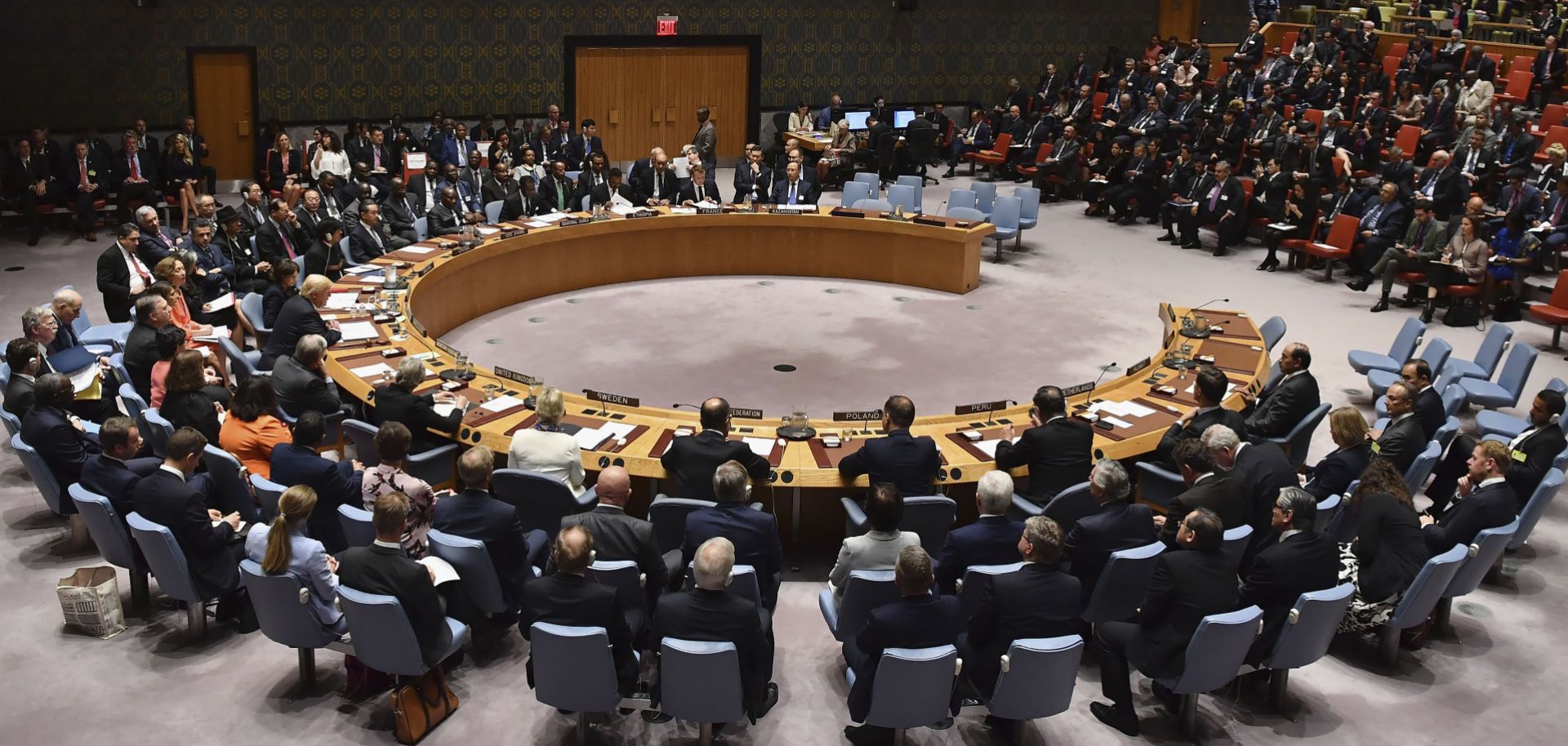COLUMNS
Taiwan, Central America and Jerusalem at the Heart of Great Power Intrigue

Sep 27, 2018 | 10:00 GMT

The Security Council meets for a briefing on counterproliferation at the United Nations in New York on Sept. 26. The meetings have provided a backdrop for bigger countries to seek the support of smaller ones on controversial issues such as the recognition of Jerusalem as Israel's capital or the retention of diplomatic ties with Taiwan.
(ANGELA WEISS/AFP/Getty Images)
Highlights
- With great power competition on the rise again, small states have a unique opportunity to push their interests in high-stakes bidding wars over sovereignty.
- Although China is clearly dominating the diplomatic battle over sovereignty against Taiwan, the United States could complicate Beijing's efforts by reinforcing Taipei, especially in its own backyard.
- U.S.-Central American ties are already under great strain due to aid cuts and deportations, but U.S. demands regarding Taiwan and Jerusalem will give these small states a rare chance to name their price for cooperation with their northern neighbor.
Subscribe Now
SubscribeAlready have an account?
